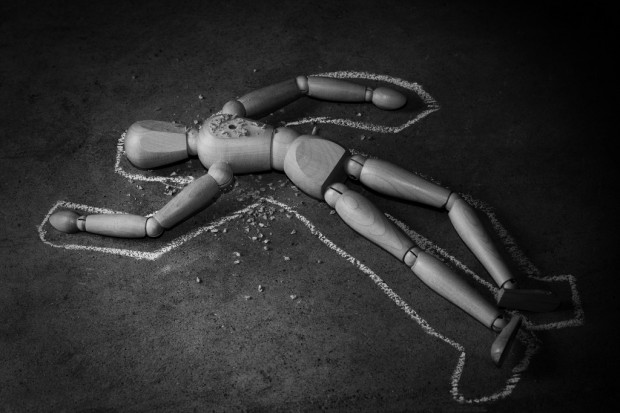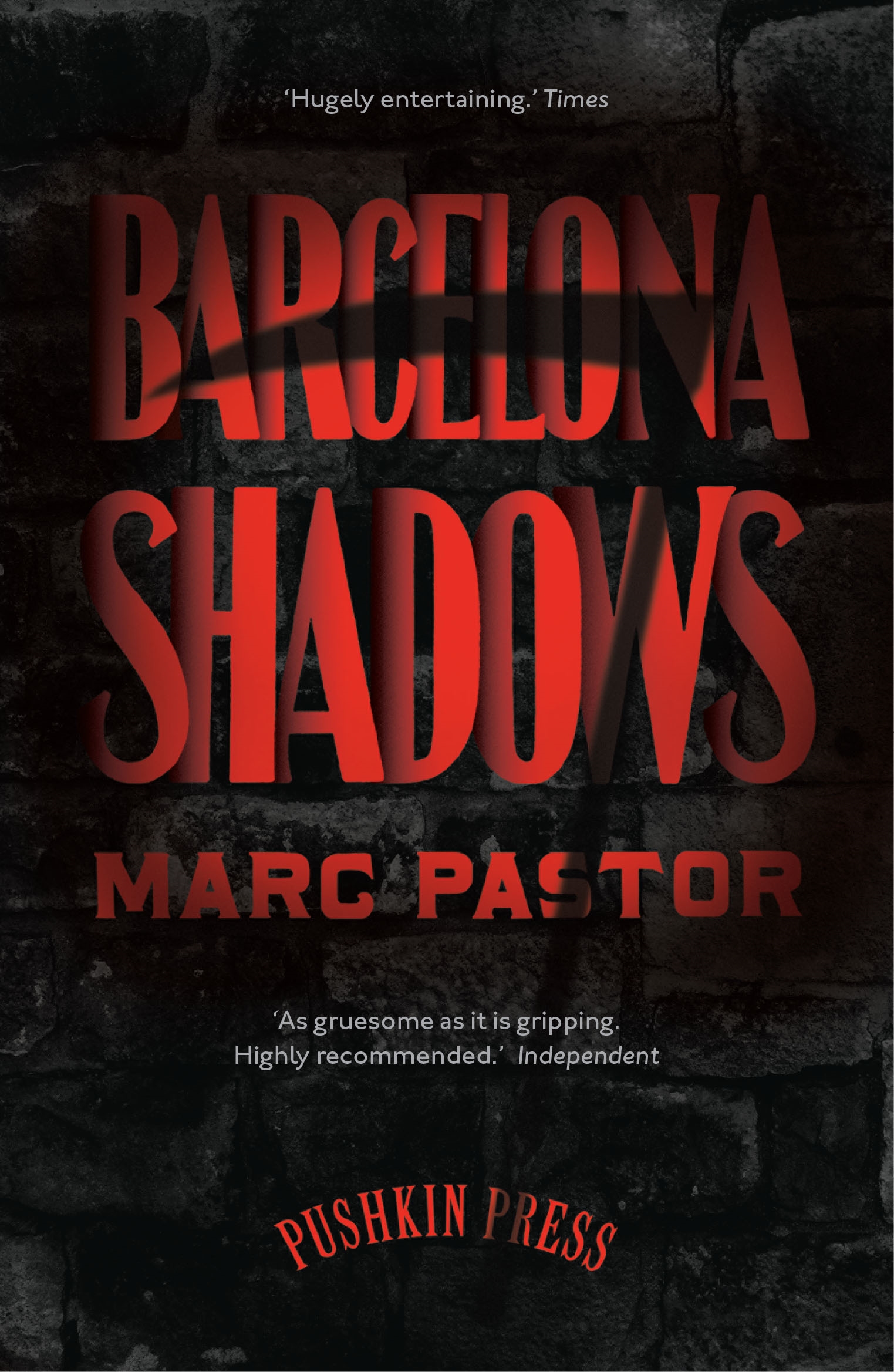You have no items in your cart. Want to get some nice things?
Go shoppingMarc Pastor – author of our latest Litro Book Club read, Barcelona Shadows – discusses his work as a CSI, and reveals why he doesn’t trust Grissom.

I don’t trust Grissom.
I mean, it’s not his fault. He’s only a fictional character. Don’t blame him. I’m talking about the CSI TV-series. They lie to us. And I know what I’m talking about.
Look at all those forensic detectives. They are so cool, always wearing sunglasses at night (well, huh, Horatio wears sunglasses 24/7, but I think that’s because Horatio ain’t got no eyes) driving Humvees and using the latest technology to find the murderer. They are so focused on their jobs that they never talk about anything else. Have you heard them arguing about politics? There are no politicians in their world, and when one comes into it, it’s because he’s gonna die/kill. Do they even talk about the movies they’ve seen or the museum they’ve gone to with their kids? Never. They only work – all day long. They are on takeovers – it’s always the same people fighting crime, somehow never becoming exhausted.
And look at the victims. Well, they are dead, but they don’t die of a simple stabbing or after an argument – oh no. They die in the most complicated ways.
And why?
Because the murderers are so creative. Did I say I don’t trust Grissom? That’s true, but I trust CSI murderers even less…
Every week there’s someone who has meticulously planned the death of a friend/foe/boss/random character. It’s cold planning – it’s trying to think ahead of the investigators: “If I do this, they are gonna think that, so I’ll leave a fake clue to make them think that blah blah blah.”
That never happens.
Almost never.
I’ve been working in the CSI Department of Mossos d’Esquadra (the police force of my country, Catalonia) for the last ten years, and I’ve only once seen advance planning like that. Oh, yes, I’ve seen people trying to pretend a homicide is a suicide, or blaming a third person as the murderer, or stuff like that. But only once did I see a real plan: this from a woman who murdered her employee/friend, rented a couple of gigolos to produce some sperm to put in the vagina of the victim, wore a wig and pretended to be the beneficiary of her life insurance. And, as on the CSI series, we got her because her statement was contradictory and we found a lot of evidence against her. That was a successful case, because she was rich and we suspected it wasn’t her first murder (her first husband mysteriously died years ago), and her execution of her plan was shabby. She wasn’t an evil mastermind like Professor Moriarty. She was more like a filler plot of a bad season of CSI. Hey, we did our job and we did it ok, but it wasn’t a challenge.
So how does it work in Barcelona?
It’s more like The Wire, the David Simon TV-Series.
But sometimes we have our fun, too. I mean, I have a weird concept of “fun”, I know. Sometimes there are some cases that look more like X-Files or Doctor Who than any other procedure.
Let me tell you about one:
It was a summer six or seven years ago. I was working on night shift with Kiko, a guy who is totally charming and is always kidding around, and it had been a very boring night. Our shift was to finish at seven o’clock in the morning, but at six o’clock, we were given notice that a body had been found dead on the street. It looked like a suicide but we had to go along anyway. It was on the other side of Barcelona and there were traffic jams, so we switched on the lights and sirens (don’t you tell me you never wanted to do that) and drove to the scene.
The dead guy was very damaged, with many broken bones and his brain had come away from his skull. He had jumped from an eleventh floor and fallen on to a motorbike. He was wearing pyjamas and had splattered the sidewalk with his blood. A drama. We went upstairs and into his apartment. His mother was just waking up and a police officer was telling her that her son had killed himself.
We went to inspect his room. And here’s what happened: the room was quite small and tight. His bed was just beside the window (which made me experience a bit of vertigo) and it was like he had woken up and just jumped out of the window; there were no signs of violence anywhere. In a box, we found a few pictures of Saints and Madonnas. Nailed on the wall was a piece of paper on which the sentence “Connecting to Akashic files” was written by his own hand. On the desk were three copies of the same book: “The truth about Akashic files”, published by “Grupo Loemi”.
Then, I looked under the bed, and I found a candle and a chalk-drawn Pentacle. Ok – that was scary.
There was some medication for schizophrenia, too, so we had an explanation.
We finished our shift and went to home to sleep. When we went back to work, that night, we had another case: a man was lying dead on his mother’s bed. There was no blood and no fighting, but he was too young to have died of natural causes. We went to the apartment and talked to his mother. He was a drug addict and had a brother who had died in a traffic accident a couple of years ago. We checked his room – and then, Kiko became livid.
“Look at this”, he said.
Kiko was pointing to copies of “The Truth about Akashic files”, all of them underlined and full of notes. There were a few pictures of Saints and Madonnas too. I looked for the Pentacle but there wasn’t one under the bed.
It was a coincidence, I’m sure about that. There’s no case. Two non-homicidal deaths on the same day, linked by the Grupo Loemi book. We did some research into the publisher. They are a fan-group of the occult, UFO watchers and Mike Oldfield fans.
“I hope there’s not gonna be any other death by Loemi this weekend” Kiko said.
“Me neither. Three deaths is considered a serial killer,” I answered, “and we’re not ready to face a mystical conspiracy”.
I don’t know why I explained that. Maybe because I’m a cop and when you ask us about something, we love re-telling our old battles. Grissom never does that. Nor does the stripper who works with him. They don’t remember the old stories. They never share them with friends. They’re never surprised by their cases, as if they have a thicker skin than yours or ours.
That’s why I don’t trust Grissom.
We pick the most exciting new titles out there for the Litro Book Club, and you’ll get them sent to you before they hit the shops. You’ll get access to live author Q&As, and the chance to see your reviews published on the site. It’s a great way of meeting like-minded book-lovers too.
Join the Club
Read the book?
Tell us what you think on the Book Club discussion page.

About Marc Pastor
Marc Pastor (b. 1977) studied criminology and crime policy, and works as a crime-scene investigator in Barcelona. He is the author of four novels: Montecristo, Barcelona Shadows, awarded the Crims de Tinta prize in 2008, L'any de la plaga and Bioko. Richly atmospheric, his work spans a range of genres, from Sci Fi to Gothic via the adventure novel. Barcelona Shadows is his first book published in English.


